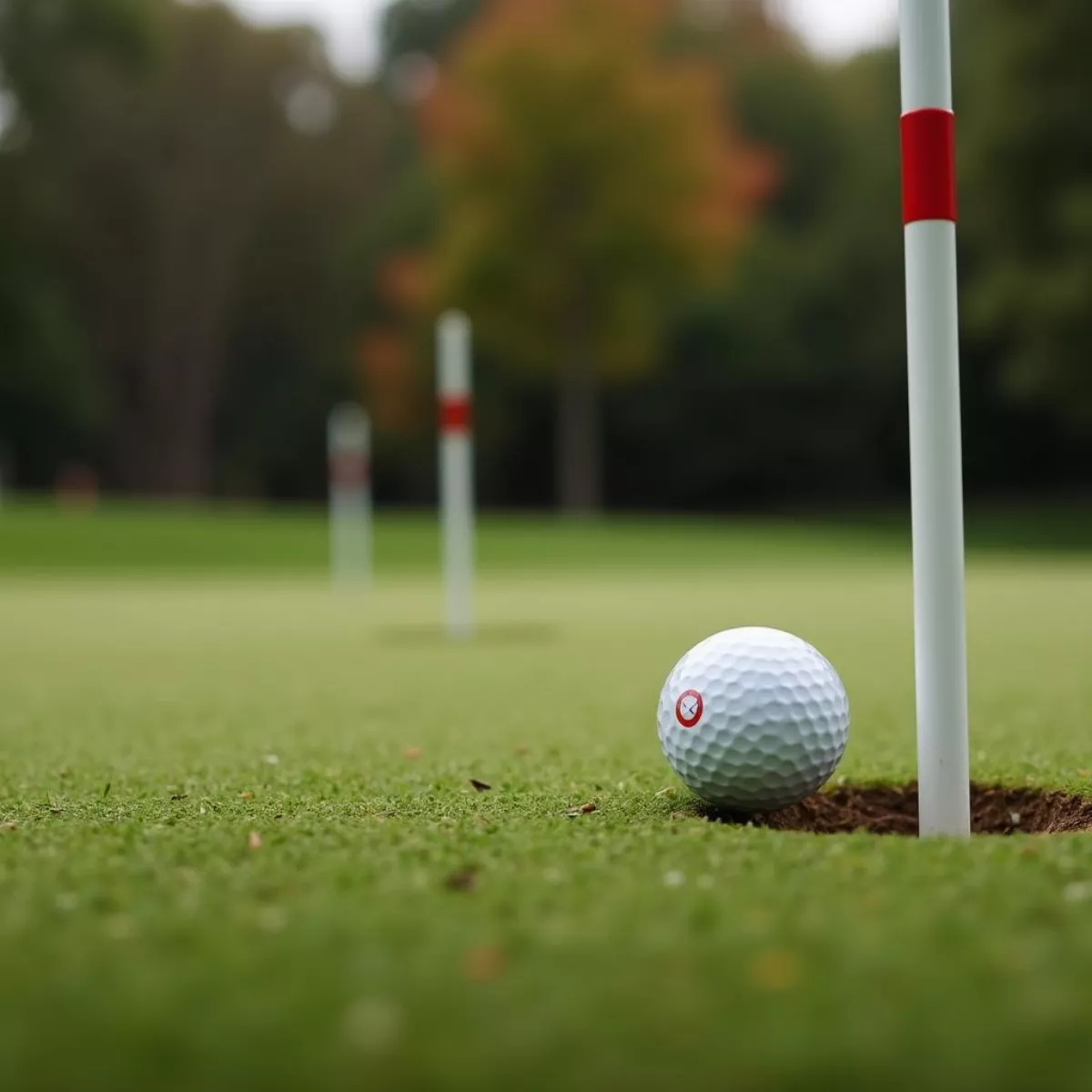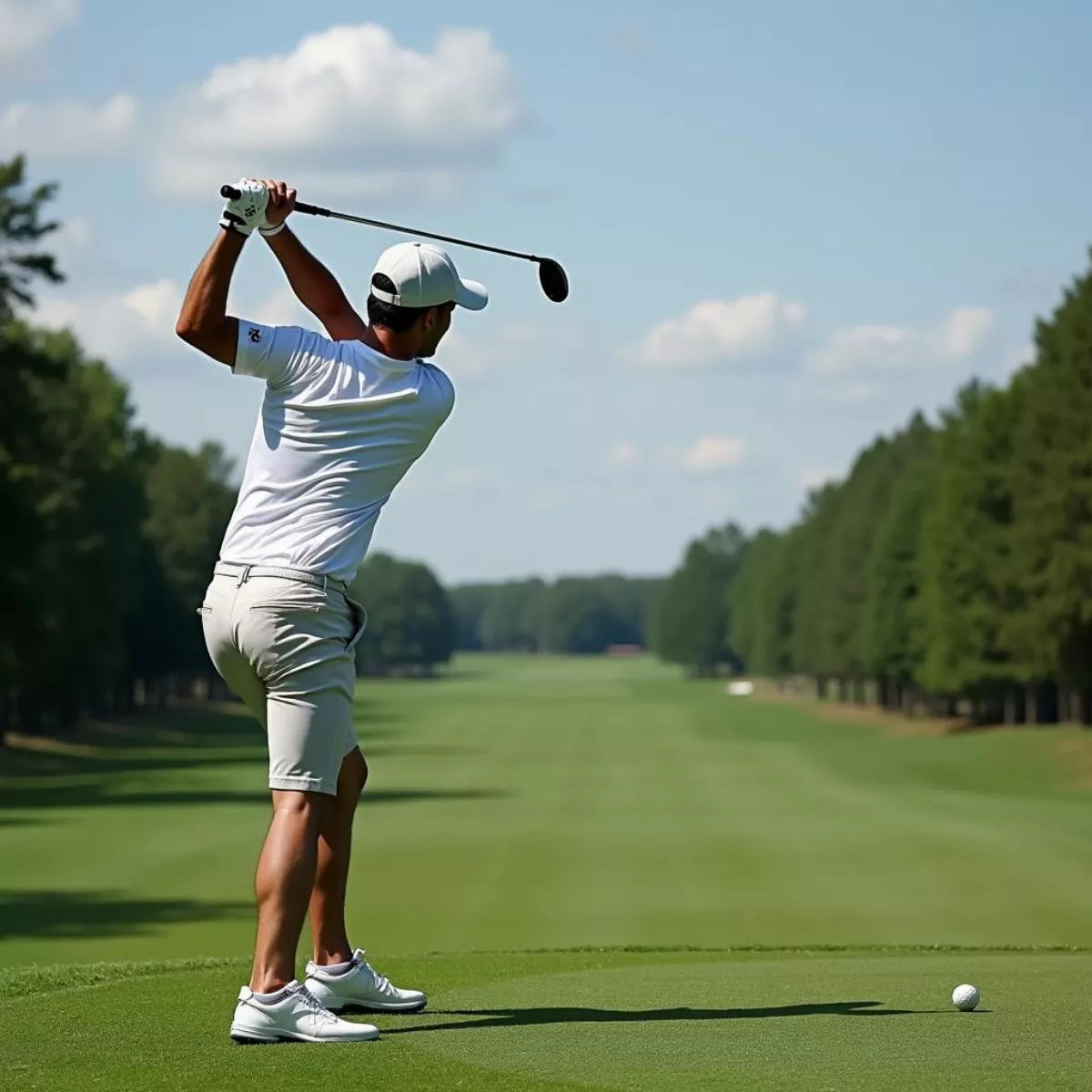what is stroke and distance

If you’re looking for a comprehensive understanding of stroke and distance in the context of golf, you’ve come to the right place! Golf can be an intricate sport with numerous rules and regulations. Yet, one of the most critical concepts players often grapple with is how to manage a situation involving stroke and distance penalties effectively. Dive into this friendly guide as we explore everything you need to know!
What is Stroke and Distance?
Stroke and distance is a golf term that refers to a specific rule applied when a player hits their golf ball out of play or loses it altogether. It involves taking a penalty stroke and returning to the original spot where the last stroke was played.
This situation primarily arises in two scenarios:
- Out of bounds: When the ball lands outside the designated playing area.
- Lost ball: When a player cannot find their ball within a reasonable amount of time (usually five minutes).
Why Is It Important?
Golf is a game of precision and patience, and understanding the stroke and distance rule can significantly impact your game. It encourages players to think strategically and penalizes reckless or poor shots.
The Rule in Detail
According to the Rules of Golf, specifically Rule 18, here’s how stroke and distance operates:
- Hit the Ball Out of Bounds:
- A player must return to their original position.
- Add one penalty stroke.
- Hit a second shot from the original position.
- Lost Ball:
- After searching for up to five minutes, if the ball cannot be found:
- Return to the original spot.
- Add one penalty stroke.
- Play a new ball from the original position.
- After searching for up to five minutes, if the ball cannot be found:
The Importance of Etiquette
Understanding the rules is just as critical as following the proper etiquette on the golf course. Players need to maintain the pace of play and respect others by being quick and efficient in decision-making, especially when dealing with stroke and distance situations.

Picture this: You tee off but lose sight of your ball after it disappears into the trees. After a five-minute search with no luck, you must go back to the tee box to hit another shot.
Here’s how it breaks down:
- You hit your tee shot (1 stroke).
- You spend five minutes looking for the ball (still 1 stroke).
- You add a penalty stroke for losing the ball (now 2 strokes).
- You tee off again (current score: 3 strokes).
This straightforward scenario demonstrates how stroke and distance can affect your total score.
Common Misconceptions
The stroke and distance rule is often misunderstood. Here are a few common misconceptions:
- “I can drop the ball where I think it went out of bounds.”
No! You must always return to the original spot. - “Five minutes is too long to look for a ball.”
Five minutes is the standard search time. Use it wisely! - “Penalty strokes add up!”
You only add one stroke for each incident of stroke and distance.

Tips for Managing Stroke and Distance
Managing stroke and distance situations effectively can significantly improve your score and enjoyment of the game. Here are some helpful tips:
- Practice Mindfulness: Pay attention during every shot. Knowing where your ball goes can save you a lot of trouble.
- Develop a Routine: Create a pre-shot routine to help with focus, potentially reducing the chances of going out of bounds or losing a ball.
- Know the Course: Familiarize yourself with the layout of the course to avoid areas that might be risky.
- Use Visual Aids: Consider using markers or landmarks to keep track of where your ball lands.
When to Consider Alternative Options
In some cases, you might have options other than stroke and distance. Always be aware of:
- Local rules: Some courses may have specific rules allowing for different recovery situations.
- Playing with Provisional Balls: This option allows you to hit a second ball in case the first one is lost or out of bounds.
Conclusion
Mastering the stroke and distance rule is critical for every golfer. Understanding when and how it applies can help you minimize penalties and enhance your game. It’s not just about sticking to the rules; it’s about improving as a player!

Key Takeaways
- Stroke and Distance applies when a ball is out of bounds or lost.
- Players must return to the original spot and take a penalty stroke.
- Familiarity with the course is essential to avoid stroke and distance situations.
- Maintain good etiquette and pace while dealing with penalties.
FAQs About Stroke and Distance
1. What happens if I find my lost ball after I’ve hit another one?
You cannot return to the original ball. You must continue playing the new ball from where it was hit.
2. Can I take a free drop instead of stroke and distance?
Only in specific local rule scenarios. Generally, stroke and distance applies.
3. Is there a maximum time for looking for a ball?
Yes, you have a maximum of five minutes to search before you must take stroke and distance.
4. Do provisional balls change stroke and distance?
No, provisional balls are an alternative. If you find the first ball, you continue from that location without penalties.
5. Can I drop my ball where I think it went out of bounds?
No, you must return to the original spot from where you last played.
6. What if I hit someone else’s ball?
You must continue without penalty unless the ball was hit out of bounds or lost.
7. What’s the penalty for hitting out of bounds?
You incur a one-stroke penalty and must replay from the original spot.
8. Does using a tee affect stroke and distance?
No, using a tee does not change the rules regarding stroke and distance.
9. How often does stroke and distance apply?
It can apply multiple times in a single round, depending on your performance.
10. Are there exceptions in professional play regarding stroke and distance?
Yes, professional tournaments sometimes have local rules that vary slightly in enforcement.
By understanding the ins and outs of stroke and distance, you can enhance your golf skills, lower your scores, and enjoy the game more. Happy golfing!